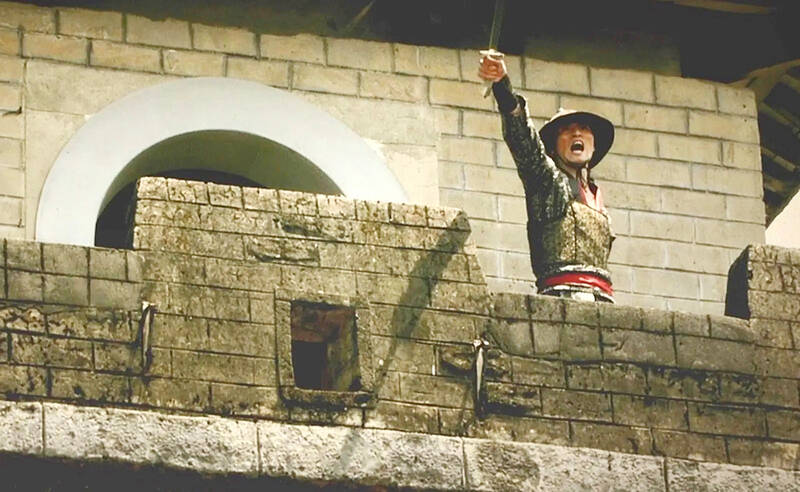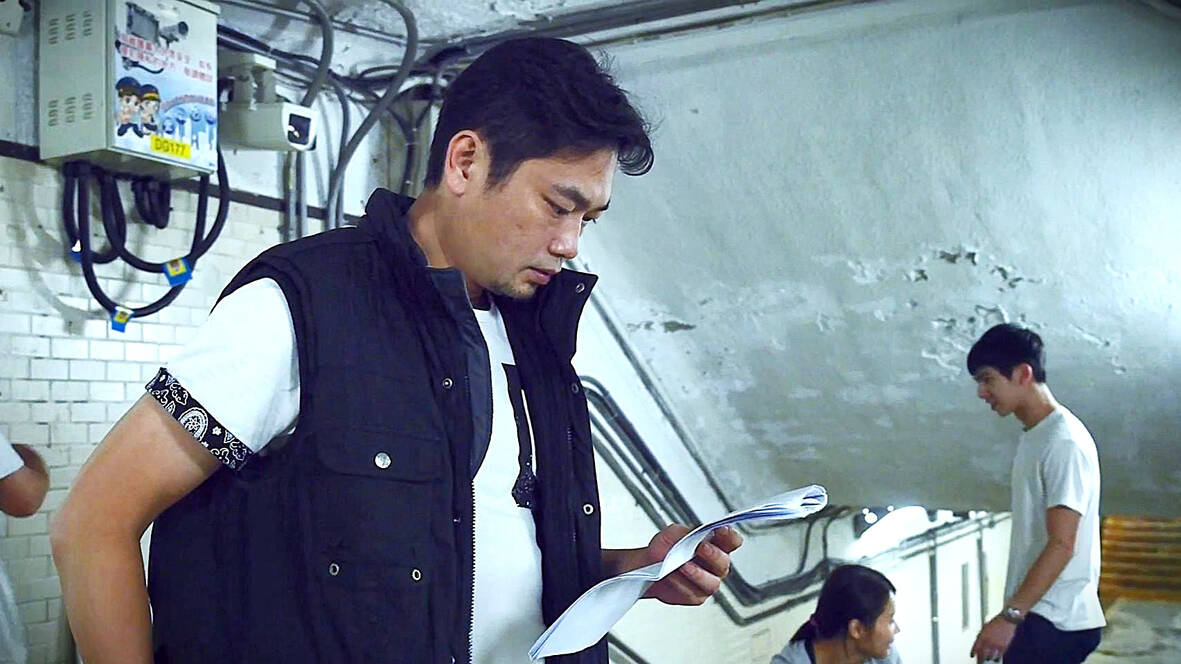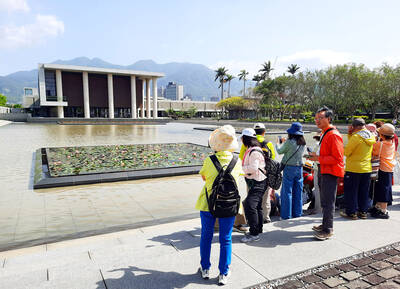This deep dive into the lives of professional movie extras starts out on a hilarious note, but the harshness of their lives soon sets in, and hits hard. Yet, the tone remains lighthearted and even upbeat due to the subjects’ relentless positivity, humor and self-deprecating nature, saving this documentary from falling into gloom and frustration.
The Extra’s Journey (臨演人生) spotlights three aspiring actors in Taipei who have been playing bit roles and background characters for years without being able to land any significant parts. Chang Ke-han (張可韓) is a martial arts enthusiast who hopes to become a an action star in China; Tsai Meng-chieh (蔡孟婕), a transplant from Kaohsiung, takes on many gigs, from facial wash commercials to roadside vendors, and Shih Sheng-lung (石聖龍) leaves his wife and teenage son in Taichung and drives an Uber to support the family when he’s not acting.
Their struggles are exacerbated by the 2016 film industry recession and COVID-19 pandemic, which happened during the seven years of filming by director Wu Hsin-yu (伍心瑜). The movie sheds light on these meagerly-paid workers, who may have appeared in your favorite movie or drama but received no recognition. It won Wu best feature at the 2022 Taiwan International Labor Film Festival.

Photo courtesy of La Su Shi Film Studio
The relentless pursuit of one’s dreams against all odds is a favorite subject in Taiwanese media, but directors often end up delivering a cliched message that’s just not relatable to most viewers. Granted, it’s hard to sugarcoat a situation where one has trouble landing even minor roles and relies on doing temp jobs just to survive on NT$200 a day. Even when they make it onto the set, they often sit there all day without being called on for any work. But this intimate, honest glimpse of their daily lives and inner thoughts is uplifting in its own way.
It helps that the subjects are often hilarious with their one-liners and musings; the situations and odd tasks they find themselves involved in are also quite absurd. Wu manages to capture countless spontaneous moments and candid interactions just at the right time, keeping the mood light and engaging.
While the three actors don’t stand out that much, they genuinely enjoy what they do and strive to better themselves. Despite their struggles, which they are frank about, they remain cheerful and upbeat, still hoping to one day land that one significant role. This is what makes them so relatable and their quests admirable. A movie cannot be made without them, and does one really have to achieve “success” to make their efforts meaningful?

Photo courtesy of La Su Shi Film Studio
Wu devotes significant screen time to the subjects’ families to help round out their stories. The three have drastically different relationships with their loved ones, who vary in their level of support, and one can see how that also contributes to their character and motivations.
As mentioned earlier, most of the funny scenes are in the first part of the movie, while the latter half is more serious and emotional. This treatment helps the audience ease into the movie and get an immediate feel for the subjects’ personalities. By the end, however, it feels uneven.
Wu, whose previous works featured youths who just got out of prison and indigenous women rebuilding their lives after Typhoon Morakot devastated their homeland, continues her exploration of those who often go unnoticed in society. She came across the topic of extras when she met Chang during casting for another project, and became interested in what their work and private lives were about.

Photo courtesy of La Su Shi Film Studio
“My original intention was just for people to pay attention to these extras,” she said at the Taipei premiere on Wednesday last week. “I hope to shift the spotlight away from the main characters.”

When the South Vietnamese capital of Saigon fell to the North Vietnamese forces 50 years ago this week, it prompted a mass exodus of some 2 million people — hundreds of thousands fleeing perilously on small boats across open water to escape the communist regime. Many ultimately settled in Southern California’s Orange County in an area now known as “Little Saigon,” not far from Marine Corps Base Camp Pendleton, where the first refugees were airlifted upon reaching the US. The diaspora now also has significant populations in Virginia, Texas and Washington state, as well as in countries including France and Australia.

On April 17, Chinese Nationalist Party (KMT) Chairman Eric Chu (朱立倫) launched a bold campaign to revive and revitalize the KMT base by calling for an impromptu rally at the Taipei prosecutor’s offices to protest recent arrests of KMT recall campaigners over allegations of forgery and fraud involving signatures of dead voters. The protest had no time to apply for permits and was illegal, but that played into the sense of opposition grievance at alleged weaponization of the judiciary by the Democratic Progressive Party (DPP) to “annihilate” the opposition parties. Blamed for faltering recall campaigns and faced with a KMT chair

Article 2 of the Additional Articles of the Constitution of the Republic of China (中華民國憲法增修條文) stipulates that upon a vote of no confidence in the premier, the president can dissolve the legislature within 10 days. If the legislature is dissolved, a new legislative election must be held within 60 days, and the legislators’ terms will then be reckoned from that election. Two weeks ago Taipei Mayor Chiang Wan-an (蔣萬安) of the Chinese Nationalist Party (KMT) proposed that the legislature hold a vote of no confidence in the premier and dare the president to dissolve the legislature. The legislature is currently controlled

Dull functional structures dominate Taiwan’s cityscapes. But that’s slowly changing, thanks to talented architects and patrons with deep pockets. Since the start of the 21st century, the country has gained several alluring landmark buildings, including the two described below. NUNG CHAN MONASTERY Dharma Drum Mountain (法鼓山, DDM) is one of Taiwan’s most prominent religious organizations. Under the leadership of Buddhist Master Sheng Yen (聖嚴), who died in 2009, it developed into an international Buddhist foundation active in the spiritual, cultural and educational spheres. Since 2005, DDM’s principal base has been its sprawling hillside complex in New Taipei City’s Jinshan District (金山). But